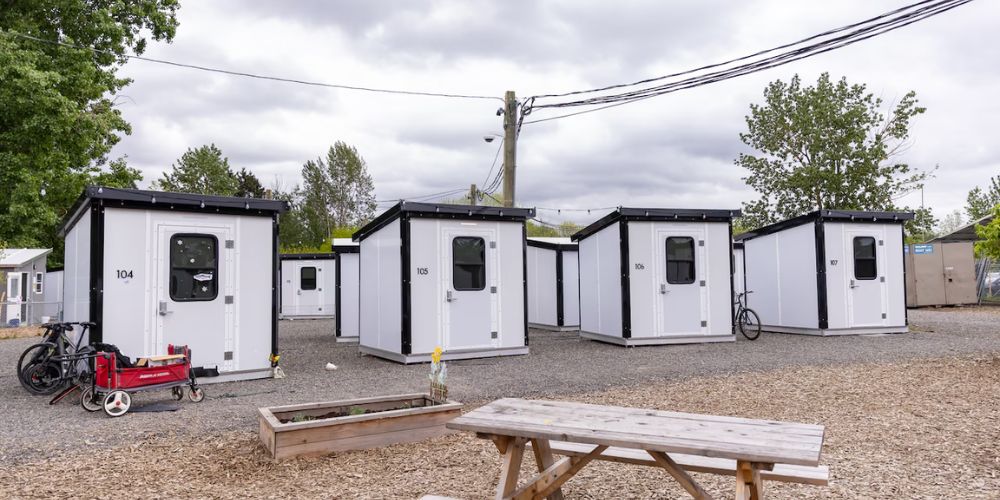A Portland homeless shelter employee was apprehended last week on suspicion of second-degree murder in the 2022 death of Shaani Mohamed, a 39-year-old Uber driver and father of eight.
Kaesha Green, 41, works for Urban Alchemy, a homeless service provider that operates four village-style shelters and a day center in Portland. Green was placed on unpaid leave on November 6, the day after her arrest, according to Urban Alchemy.
According to court records, Green was previously charged with being a felon in possession of a firearm in 2022 and 2017 and pleaded guilty in both cases. She was also found guilty of first-degree burglary in 2009.
Justin Ortega-Mejia, 28, faces a second-degree murder allegation in connection with Mohamed’s death.
Police haven’t said how they linked Ortega-Mejia and Green to the shooting. According to the indictments, the incident occurred as the two suspects were robbing Mohamed.
Musse Olol, president of the Somali American Council of Oregon, said he was relieved to learn that two persons had been detained in Mohamed’s murder. Olol stated that his organization continues to support Mohamed’s widow and her eight children, including a three-year-old who was an infant when her father was slain and two teens who have graduated from high school.
“It’s the beginning of healing,” said Olol, who said he hoped Portland Police Bureau detectives had done their work well and arrested the right people, acknowledging that both are innocent until proven guilty in a court of law.
Green joined Urban Alchemy in 2023, a year after she was accused of murder. She had no prior knowledge of the shooting when she was hired.
According to Urban Alchemy spokeswoman Jes Montejano, the company makes a point of hiring people with criminal records, who typically have a tough time finding job after serving their sentence.
“We prioritize hiring long-term offenders and harness the skills and energy of these returning citizens to transform people and places through love and respect,” Montejano said in an email to The Oregonian/OregonLive. “Each one of our staff has a unique superpower because of their lived experience to connect with those in crisis and the people they serve.”
Green was in charge of Urban Alchemy’s latest endeavor to establish sober living areas within its shelters, dubbed as wellness villages.
In a February interview with The Oregonian/OregonLive on the wellness villages, Green explained that she was driven to the job of creating safe spaces for people in recovery from substance use disorder in part because she was still recovering. She said it was great to witness people grow as they achieved and maintained sobriety.
“People are in need of love and compassion and not to be looked at like they’re nothing,” Green said that day. “You’re already beating your own self up.”
According to corporate executives, Urban Alchemy conducts background checks on all employees as well as individual assessments before employment. When an employee violates the company’s standards, Montejano claims Urban Alchemy takes fast action.
“We understand the seriousness of the allegations against Ms. Green, and believe that the justice system must run its course in this circumstance,” Montejano said.
In 2023, Portland engaged Urban Alchemy to administer one of its newly constructed sleeping pod shelters. Since then, the city has expanded the nonprofit’s Portland area.
Urban Alchemy has encountered difficulties before.
In 2022, thirty residents of Urban Alchemy’s safe camping site in Sausalito, a California city just north of San Francisco, sued the NGO. According to the lawsuit, Urban Alchemy employees supplied and consumed methamphetamines while working on the site, and another worker sexually abused a lady who lived there. According to The Oregonian/OregonLive, a federal judge denied Sausalito’s request to renew its contract with Urban Alchemy and forbade two of the nonprofit’s employees from returning to the property. A settlement required the city to pay around $18,000 to each of the 30 campers.








Leave a Reply